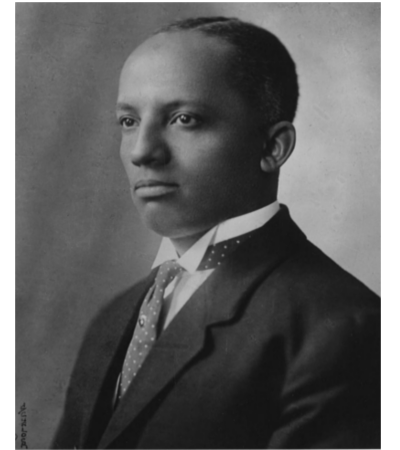Celebrating Dr. Carter G. Woodson, Founder of Black History Month
February this year marks the 20th anniversary of the Canadian government’s official recognition of Black History Month in Canada and the 89th anniversary of Black History Month, which I prefer to call African Heritage Month.
Africa Heritage Month was initiated in 1926 as Black History Week by Dr. Cater G. Woodson, a Harvard professor as a modest attempt to recapture and restore the stolen, distorted and maligned history of people of descent. In the 1960s the week was extended to a month.
His tireless efforts to restore the distorted history of people of African descent and to rehabilitate the deformed image of our people will never be forgotten. Against all odds, he researched, wrote, published, and lectured on a topic so dear to his heart: the contribution of Africa’s sons and daughters to the stock of world knowledge and civilization.
He insisted that the knowledge and dissemination of African history would, “besides building self-esteem among blacks, help eliminate prejudice among whites”. His cardinal aim was “to inculcate in the mind of the youth of African blood an appreciation of what their race has thought and felt and done” and to publicize the facts of Black history among Whites, so that “the Negro may enjoy a larger share of the privileges of democracy as a result of the recognition of his worth.”[i]
In a 1921 speech, Dr. Woodson addressed the issue forthrightly: “We have a wonderful history behind us. … If you are unable to demonstrate to the world that you have this record, the world will say to you, ‘You are not worthy to enjoy the blessings of democracy or anything else’. They will say to you, “Who are you, anyway?” Your ancestors have never controlled empires or kingdoms and most of your race have contributed little or nothing to science and philosophy and mathematics.’”[ii]
In his 1933 classic work The Miseducation of the Negro, Dr. Woodson listed the fundamental problems concerning the education of the African person. He noted how we Blacks have been educated away from our own culture and traditions and how as African peoples we have attached ourselves to European culture, often to the detriment of our own heritage.
Ghana’s Kwame Nkrumah wrote about both the need for efforts such as Dr. Woodson’s and the result as “a re-awakening [of] consciousness among Africans and peoples of African descent of the bonds that unite us -- our historical past, our culture, our common experience and our aspirations.”[iii]
The late Afro-Guyanese historian Walter Rodney made the same point when he wrote that “What we need is confidence in ourselves, so that as Africans we can be conscious, united, independent and creative. Knowledge of African achievements in art, education, religion, politics, agriculture, medicine, science and the mining of metals can help us gain the necessary confidence which has been removed by slavery and colonialism.”[iv]
Thanks to the works of prominent historians, African as well as European and American, it is now known that Africans have contributed the world’s stock of knowledge in various fields, including astronomy, mathematics, metallurgy, medicine, engineering and so on. What is more, it has been amply demonstrated that ancient Egyptian science and technology laid the very foundation for the development of Europe.
The best tribute we can pay to Dr. Woodson therefore is to let his story inspire us to write our own stories and never let our detractors to continue to symbolically annihilate us through misrepresentation, under-representation, and marginalization in the media, popular culture and scholarship.
We must continue to research and write our own history. Colonizers and enslavers have never been known to be benevolent or altruistic even in the recording of history. We must chronicle our contemporary lives and events by pooling our resources to establish respectful and far-reaching media outlets to counter the continued establishment media’s negative portrayal of us.
It will be foolhardy to expect the mainstream media to portray us in any better light than they are doing now. Far from the mainstream media’s pontification about objective, balanced, and color-neutral reporting, they are subjective, skewed, selective, and color-sensitive. Ideological values, economic calculation, and political logic dictate that they must serve their constituencies first and foremost.
By Charles Quist-Adade, PhD
2/10/2015
[i] See The Mis-Education of the Negro - History Is A Weapon
[ii] Ibid
[iii] Kwame Nkrumah's Contribution to Pan-African Agency: An ...
[iv] See Rodney Walter [PDF]How Europe Underdeveloped Africa. Walter Rodney 1973
Created by SabaDesigns


